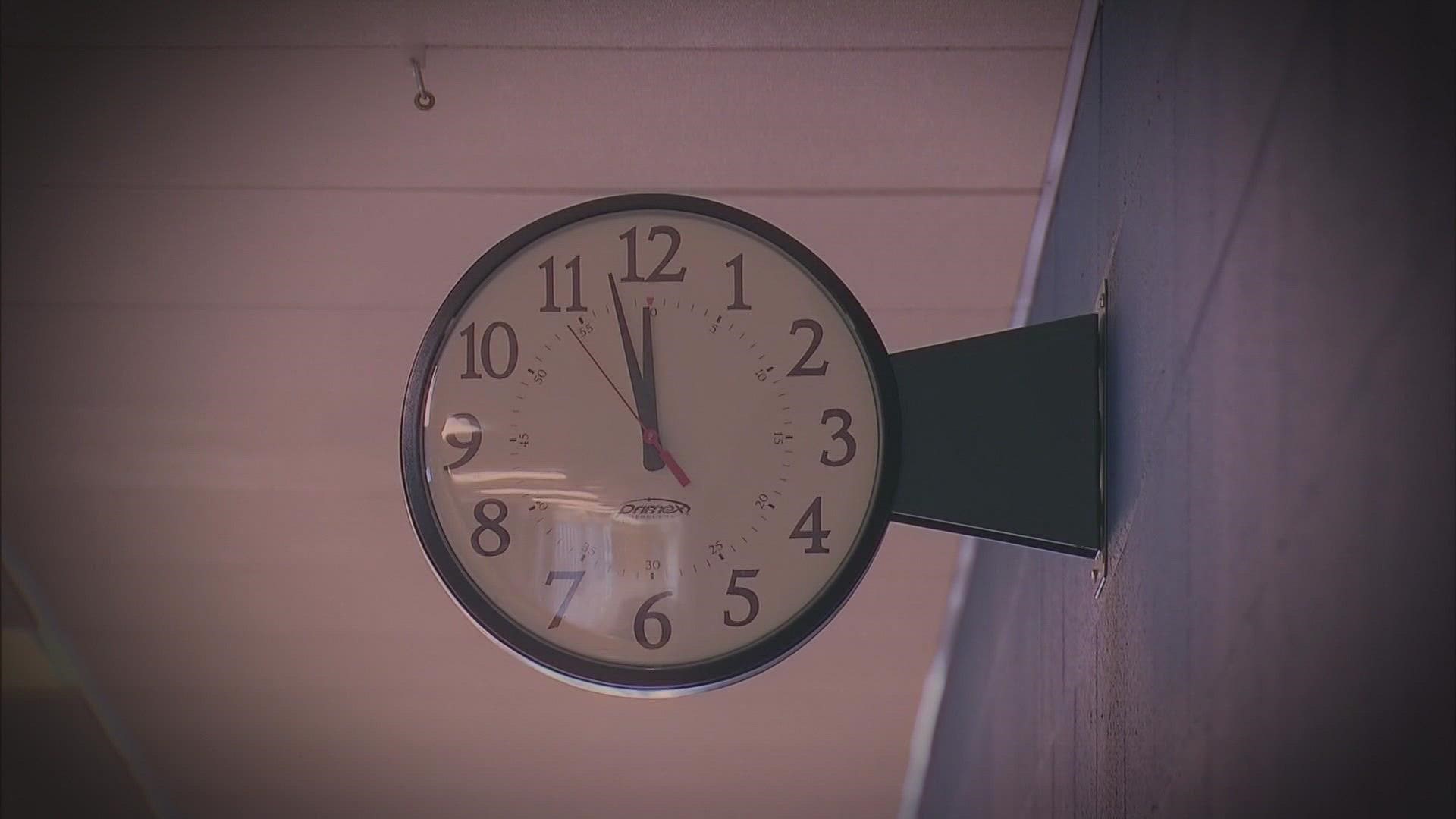WASHINGTON — Are you tired of gaining and then losing an hour of sleep each year because of daylight saving time? Apparently, so is the U.S. Senate.
The Senate passed by unanimous consent the Sunshine Protection Act on Tuesday, a measure that would make daylight saving time permanent. It was introduced by Senators Marco Rubio (R-FL) and Ed Markey (D-MA) and had 16 other co-sponsors, including Senator Patty Murray (D-WA).
It still needs approval from the U.S. House of Representatives, before going to President Joe Biden for his signature.
Sen. Murray said not having to change our clocks twice a year would reduce stress. There are a "number" of scientists that have said having more light at the end of the day can be beneficial, Murray said.
"For those of us in Washington, when we switch clocks in the fall, it's so dark at four o'clock in the afternoon and it's so depressing for a lot of people," she said.
Many states, including Washington, have already adopted legislation to permanently switch to daylight saving time -- but for such laws to go into effect, Congress has to act. Rubio and a bipartisan group of lawmakers in Congress have been proposing for several years to ditch the clock changing.
RELATED: Spring forward: Washington still turns clocks ahead despite passing daylight saving time law
Reuters reports that after input from airlines and broadcasters, supporters agreed that if approved the change would not take place until November 2023. So even if the bill becomes law, the U.S. will resume standard time and "fall back" in November 2022, before "springing forward" again next year.
In a renewed push for the measure this month, Rubio didn't mince words on daylight saving time.
"Switching in and out of daylight saving time is outdated, and it's only a source of annoyance and confusion. Frankly, it's just dumb, and there's just no other way to say it," the senator said in a video message.
The idea of a permanent switch has been gaining popularity. In the last four years, 18 states have passed legislation or resolutions supporting year-round daylight saving time, according to the National Conference of State Legislatures.
An analysis from the NCSL found that so far in 2022, at least 28 states are considering new or 2021 carryover bills addressing daylight saving time.
A poll conducted last October shows that most Americans want to avoid switching between daylight saving and standard time, though there is no consensus behind which should be used all year.
The poll from The Associated Press-NORC Center for Public Affairs Research found only 25% of Americans said they preferred to switch back and forth between standard and daylight saving time.
Forty-three percent of Americans said they would like to see standard time used during the entire year. Thirty-two percent say they would prefer that daylight saving time be used all year.
The Associated Press and Andrew Weil contributed to this report.

